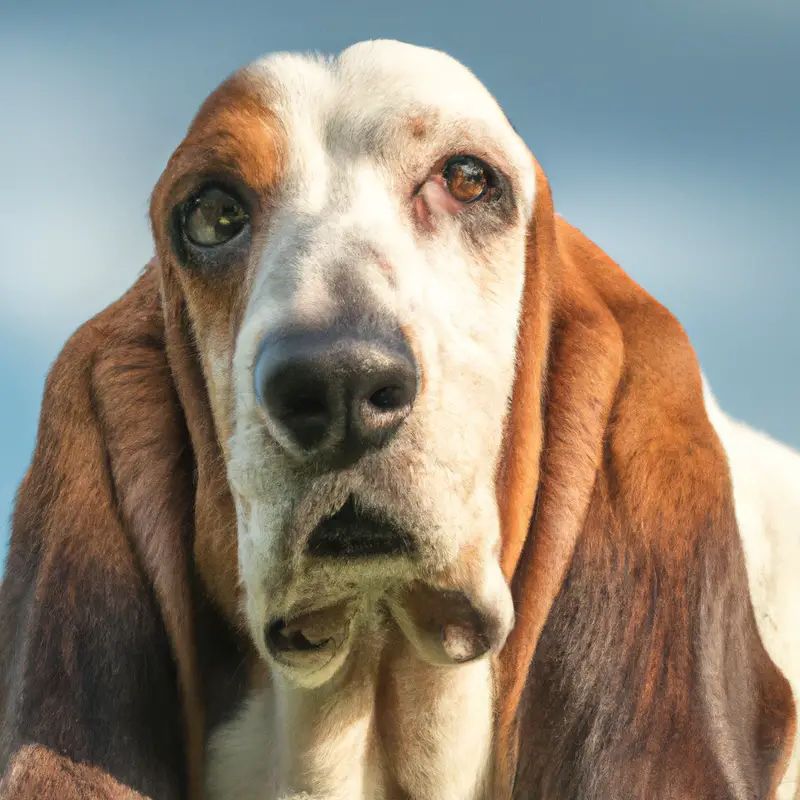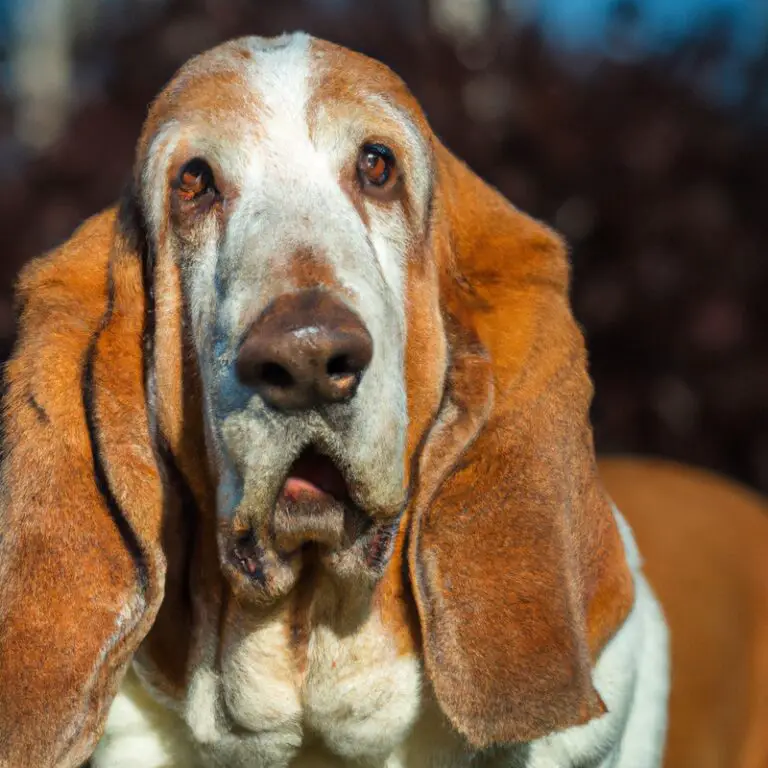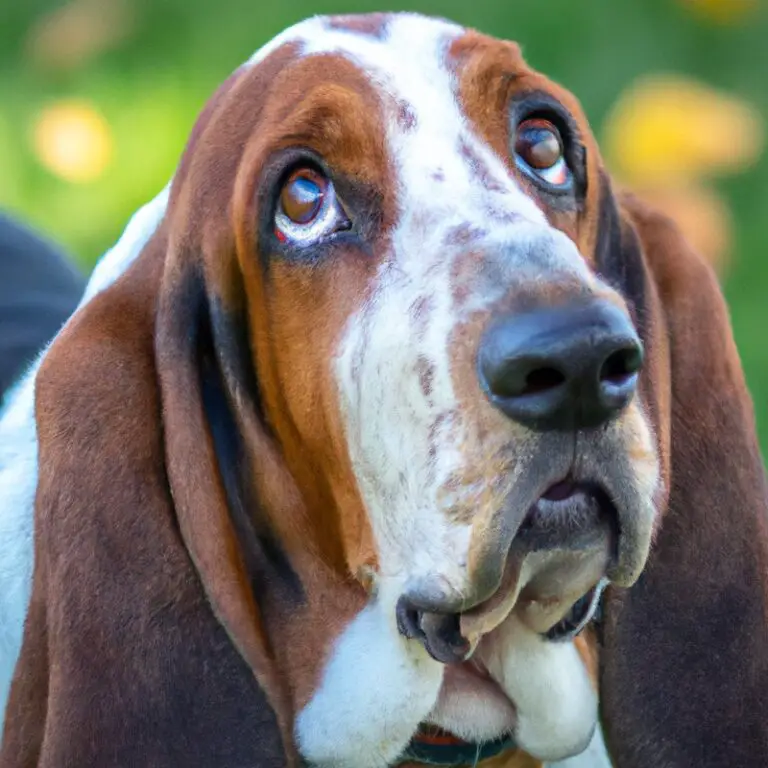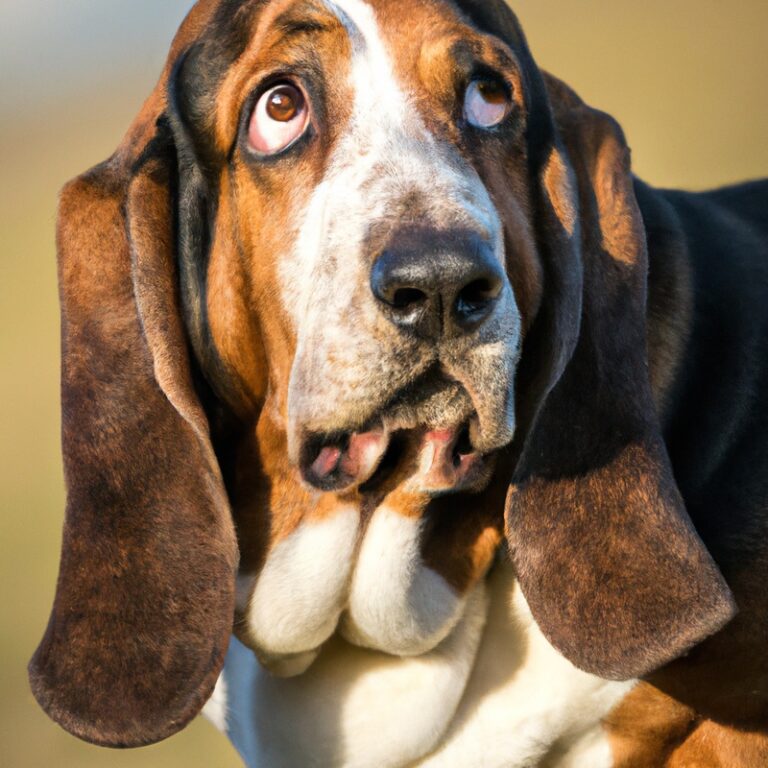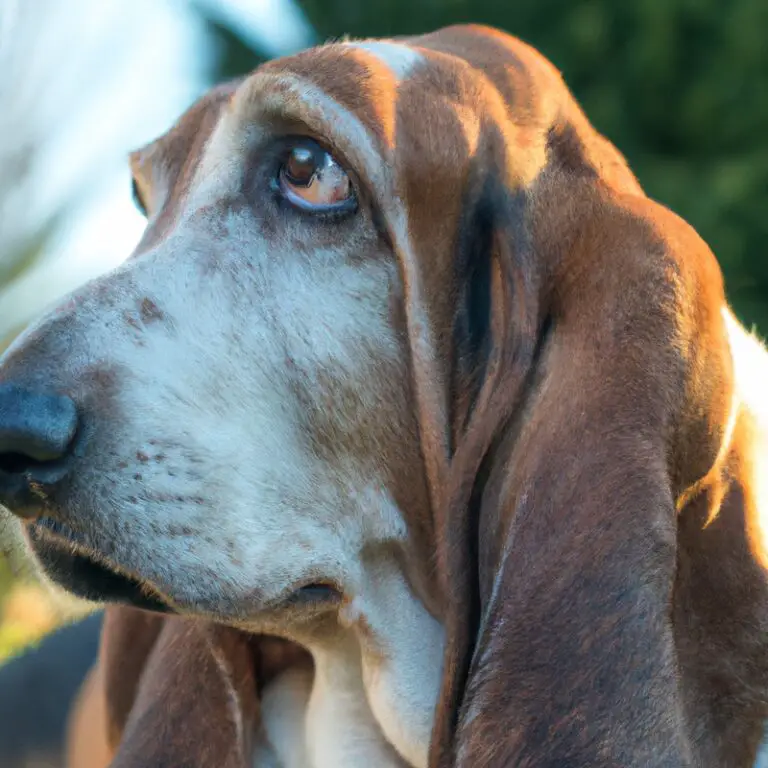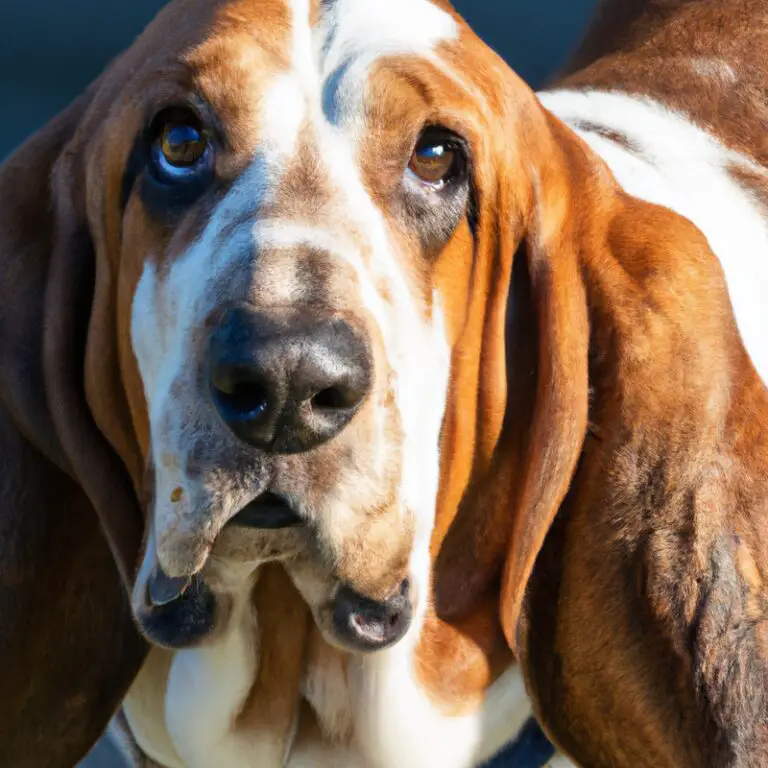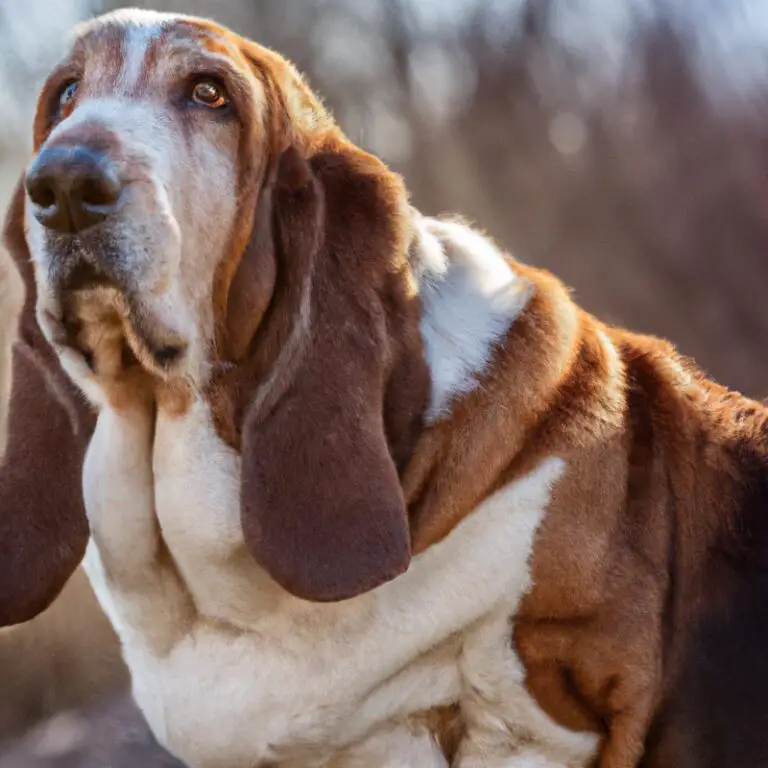Are Basset Hounds Prone To Excessive Snoring, Drooling, And Howling?
Key Takeaways:
- Basset Hounds are prone to excessive snoring due to their anatomy.
- Drooling is common in Basset Hounds due to their loose lips and jowls.
- Basset Hounds have a tendency to howl, especially when they are bored or lonely.
Hey there, fellow dog lovers! If you’re curious about Basset Hounds and their unique quirks, then you’ve come to the right place.
Today, I want to dive into the world of Basset Hounds and explore whether they’re prone to excessive snoring, drooling, and howling.
These adorable floppy-eared pups have captured the hearts of many, but do their irresistible looks come with a soundtrack of snorts, slobber, and howls?
Join me as we uncover the truth behind these endearing and sometimes, slightly noisy, behaviors.
So, sit back, relax, and let’s embark on this barking adventure together!
| Yes | No | |
| Excessive Snoring | ✓ | |
| Drooling | ✓ | |
| Howling | ✓ |
Are Basset Hounds Prone to Excessive Snoring?
Understanding the Basset Hound’s Anatomy
The Basset Hound’s anatomy is unique and contributes to their distinct appearance and behaviors.
They have long ears that aid in scent detection, a large, prominent nose, and loose, wrinkled skin.
Their bodies are low to the ground with short, sturdy legs, which make them excellent trackers.
Basset Hounds also have deep chests and loose jowls, which can contribute to their snoring and drooling tendencies.
Understanding these physical characteristics can help us better care for and appreciate these lovable dogs.
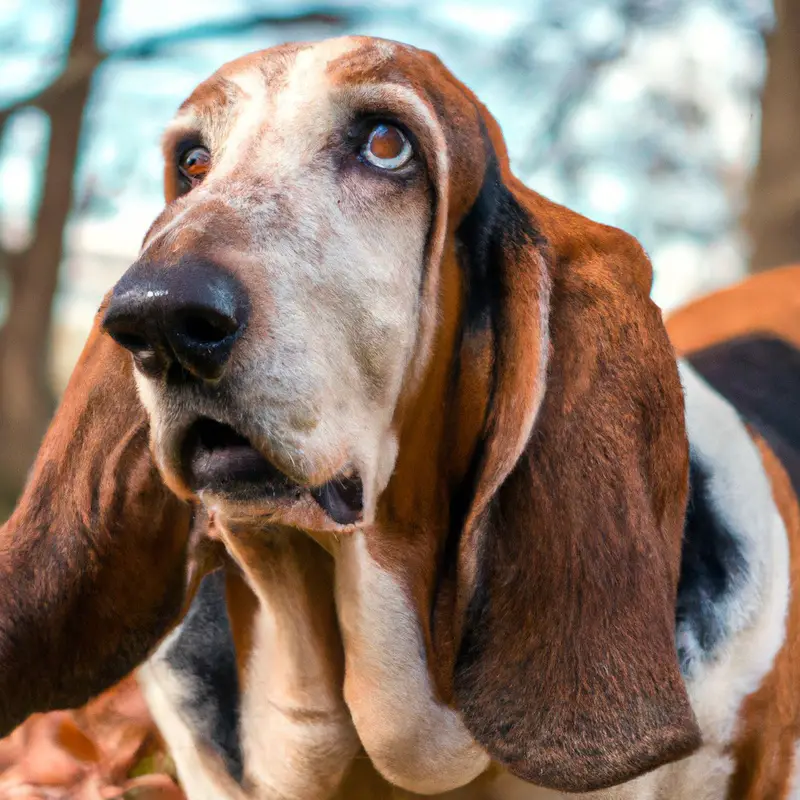
Causes of Excessive Snoring in Basset Hounds
Basset Hounds are prone to excessive snoring due to their unique anatomy.
The primary cause of their snoring is their long, floppy ears and elongated soft palate, which can obstruct their airways.
Additionally, their loose skin and wrinkled face can contribute to snoring.
Obesity can also exacerbate snoring in Basset Hounds.
Regular exercise, maintaining a healthy weight, and providing a comfortable sleeping environment can help manage excessive snoring in these lovable dogs.
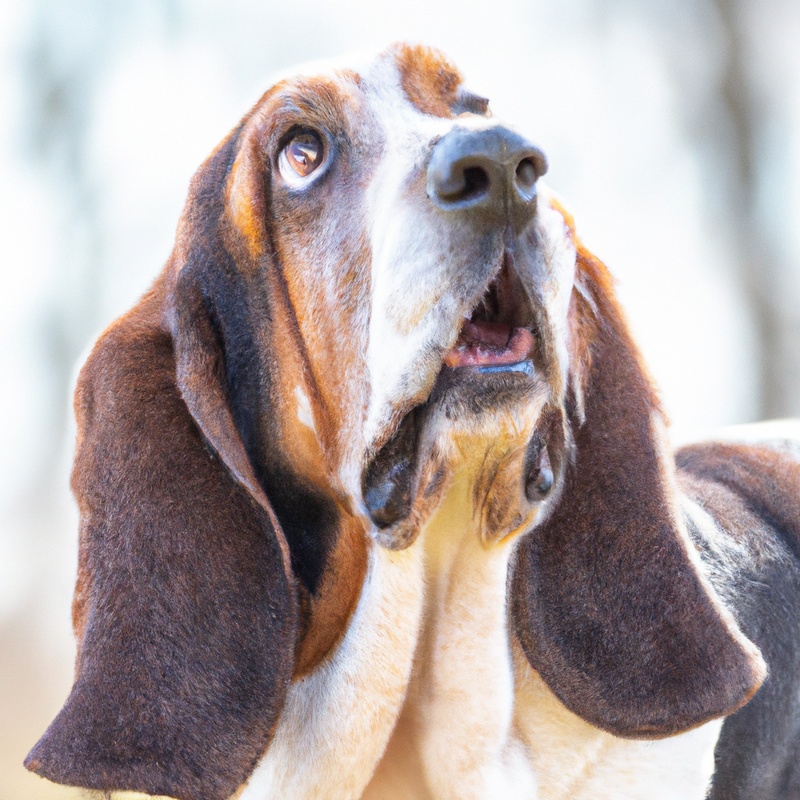
How to Manage or Reduce Excessive Snoring
To manage or reduce excessive snoring in your Basset Hound, there are a few things you can try.
First, make sure your dog is in a comfortable sleeping position, as certain positions can worsen snoring.
Additionally, keep your Basset Hound at a healthy weight, as obesity can contribute to snoring.
Lastly, consider using a raised bed or pillow to help open their airways.
If snoring persists or worsens, it’s best to consult your veterinarian for further guidance.
Are Basset Hounds Prone to Excessive Drooling?
Why Basset Hounds Are Known for Excessive Drooling
Basset Hounds are known for excessive drooling due to their unique anatomy.
Their loose and wrinkled skin around the mouth and jaw, as well as their long, droopy ears, contribute to increased drooling.
Additionally, Basset Hounds have larger jowls and salivary glands compared to other breeds.
This excess saliva production is a natural characteristic of the breed.
While it can be messy, it’s important to embrace and manage their drooling with regular cleanings and providing access to fresh water.
Tips for Managing and Reducing Drooling in Basset Hounds
To manage and reduce drooling in Basset Hounds, here are some helpful tips:
- Keep them hydrated: Make sure they have access to fresh water at all times.
- Use a bib or bandana: This can help catch and absorb the drool, keeping them more comfortable.
- Regular grooming: Regularly clean your Basset Hound’s face and mouth to prevent excessive saliva buildup.
- Proper dental care: Regular brushing, professional cleanings, and dental treats can help maintain good oral health and reduce drooling.
- Control their diet: Feeding your Basset Hound a balanced diet can help prevent excessive drooling caused by certain foods or allergies.
- Avoid stress: Stress and anxiety can increase drooling. Provide a calm and comfortable environment for your Basset Hound.
Remember, while some drooling is normal for Basset Hounds, if you notice a sudden increase or any other concerning symptoms, it’s best to consult with a veterinarian for further evaluation.
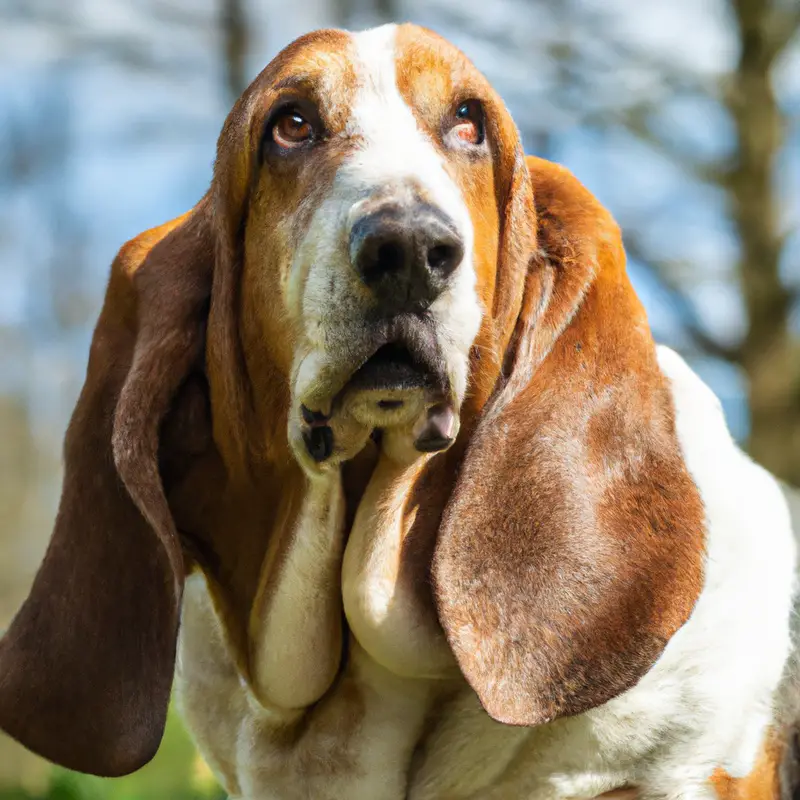
Health Concerns Related to Excessive Drooling
Excessive drooling in Basset Hounds can lead to certain health concerns that owners should be aware of.
One potential issue is skin irritation or infections around the mouth and chin due to the constant presence of saliva.
Bacteria can thrive in the moist environment, leading to discomfort and potential complications.
Another concern is the risk of dehydration, as excessive drooling can lead to a loss of fluids.
It’s important to monitor your Basset Hound’s drooling and seek veterinary advice if any health concerns arise.
Are Basset Hounds Prone to Excessive Howling?
Understanding the Basset Hound’s Vocal Nature
Basset Hounds have a unique vocal nature that sets them apart from other breeds.
They are known for their deep, mournful howls and barks.
Their vocalizations can range from soft and melodious to loud and attention-grabbing.
Bassets use their voices to communicate various emotions, such as joy, frustration, or boredom.
Understanding their vocal nature helps owners respond appropriately to their needs and helps build a stronger bond with these lovable dogs.
It’s important to remember that excessive howling can also indicate underlying issues, so it’s crucial to consult a veterinarian if you have concerns.
Common Triggers for Excessive Howling in Basset Hounds
Basset Hounds are known for their melodious howling, but excessive howling can be a concern. There are a few common triggers for this behavior in Bassets.
Firstly, boredom or lack of mental stimulation can lead to excessive howling.
Bassets are intelligent dogs and need plenty of mental and physical exercise. Secondly, separation anxiety can cause them to howl when left alone for extended periods.
Bassets are pack animals and thrive on companionship.
Lastly, environmental triggers such as sirens, other dogs howling, or even certain sounds can set off a howling spree. Identifying and addressing these triggers can help manage excessive howling behavior in Basset Hounds.
Techniques for Managing Excessive Howling Behavior
To manage excessive howling behavior in Basset Hounds, there are several techniques you can try:
- Identify the trigger: Pay attention to what prompts your Basset Hound to howl excessively. It could be loneliness, boredom, or even certain sounds. Understanding the trigger will guide your management approach.
- Provide mental and physical stimulation: Engage your Basset Hound in activities that keep them mentally and physically stimulated. This can include daily walks, playtime, puzzle toys, and training sessions.
- Establish a routine: Basset Hounds thrive on routine. Stick to consistent feeding, exercise, and sleep schedules. This will help alleviate anxiety and reduce excessive howling.
- Provide a comfortable environment: Make sure your Basset Hound has a comfortable and quiet space to relax. Ensure they have access to food, water, toys, and a cozy bed.
- Seek professional help if necessary: If your Basset Hound’s excessive howling persists, consider consulting a professional dog trainer or behaviorist. They can provide specialized guidance and training techniques.
Remember, every Basset Hound is unique, so it may take some time and experimentation to find the right management techniques that work for your furry friend.
Final Verdict
Basset Hounds are indeed prone to excessive snoring, drooling, and howling.
Their unique anatomy, including their large heads and loose skin, contribute to these behaviors.
While snoring and drooling are normal for this breed, they can be managed through proper care, such as maintaining a healthy weight and keeping the facial folds clean and dry.
Howling, on the other hand, can be triggered by various factors and can be addressed through training and providing mental and physical stimulation.
Overall, understanding and addressing these tendencies will ensure a harmonious and happy relationship with your Basset Hound.

